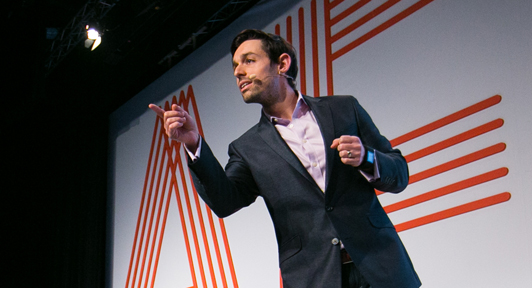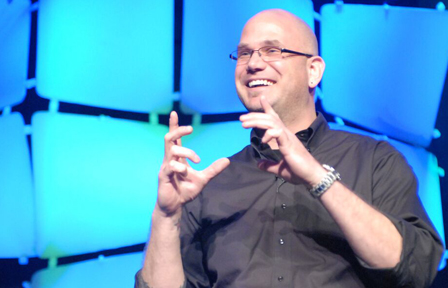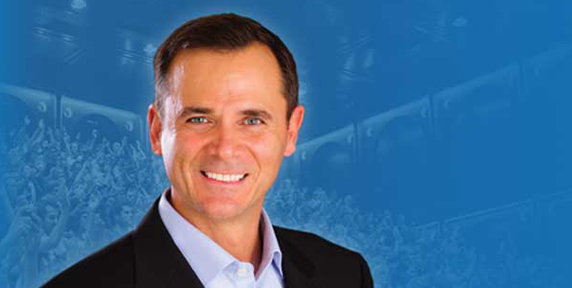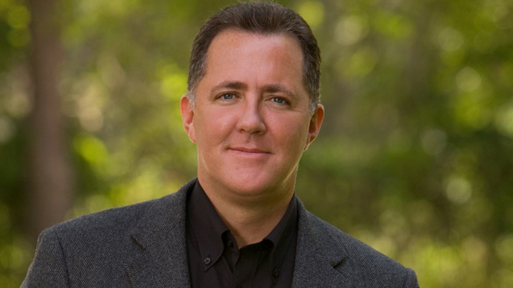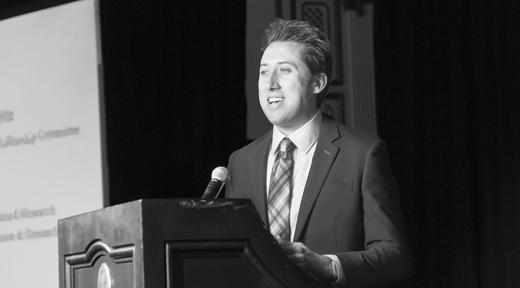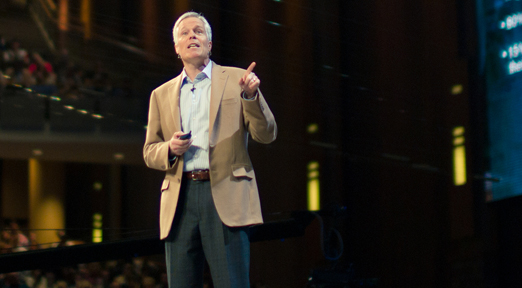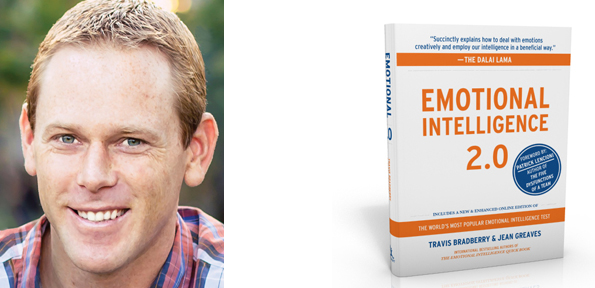
Emotional Intelligence with Dr. Travis Bradberry
Dr. Travis Bradberry is the award-winning co-author of the #1 best-selling book Emotional Intelligence 2.0 and the co- founder of TalentSmart—a consultancy that serves more than 75% of Fortune 500 companies and is the world’s leading provider of emotional intelligence tests and training. His best-selling books have been translated into 25 languages and are available in more than 150 countries.
| Emotional intelligence is a strong predictor of how people do in life. | |
| |
 | What first attracted you to the subject of emotional intelligence (EQ)? |
 | I first became interested in emotional intelligence when I came across the seminal studies from Yale as an undergrad. My interest blossomed from there because emotional intelligence is such a strong predictor of how people do in life. |
 | Why is EQ important? |
 | TalentSmart has conducted research with more than a million people, and we’ve found that 90% of top performers are skilled at managing their emotions in times of stress in order to remain calm and in control. Emotional intelligence is the “something” in each of us that is a bit intangible. It affects how we manage behavior, navigate social complexities, and make personal decisions that achieve positive results. |
| The biggest mistake people make when it comes to listening is they’re so focused on what they’re going to say next - or how/what the other person is saying is going to affect them - that they fail to hear what’s being said. | |
| |
 | Could you give us three techniques for improving EQ? |
 | My book Emotional Intelligence 2.0 unveils a step-by-step program for increasing your emotional intelligence via 66 proven strategies that target self-awareness, self-management, social awareness, and relationship management. Here are three effective ways to improve EQ:
A. Use Positive Body Language It’s true that how you say something can be more important than what you say. B. Ask Questions A simple way to avoid this is to ask a lot of questions. People like to know you’re listening, and something as simple as a clarification question shows that not only are you listening, you also care about what they’re saying. You’ll be surprised how much respect and appreciation you gain just by asking questions. C. Squash Negative Self-Talk You can bet that your statements aren’t true any time you use words like “never,” “worst,” “ever,” etc. If your statements still look like facts once they’re on paper, take them to a friend or colleague you trust and see if he or she agrees with you. Then the truth will surely come out. When it feels like something always or never happens, this is just your brain’s natural threat tendency inflating the perceived frequency or severity of an event. Identifying and labeling your thoughts as thoughts by separating them from the facts will help you escape the cycle of negativity and move toward a positive new outlook. |
| EQ skills are what set great leaders apart. These skills represent the otherwise intangible qualities that great leaders have in common. | |
| |
 | How can organizations use EQ to increase the capacity and performance of their leaders? |
 | We’ve tested more than a million people and found that EQ skills are what set great leaders apart. These skills represent the otherwise intangible qualities that great leaders have in common.
In my research, I’ve found that 90% of top performers in leadership positions are high in emotional intelligence, whereas only 20% of bottom performers are high in emotional intelligence. EQ isn’t a guarantee of success, but there’s a massive correlation between EQ and performance. Anyone can improve his or her EQ. First you need to take an assessment that will show you what you need to work on, and then it’s a simple matter of practice. That’s why we include a passcode inside our Emotional Intelligence 2.0 book, so that each reader can test his or her EQ and know what to work on. |
 | How can EQ be measured? |
 | Emotional intelligence is measured through the behavior you demonstrate (or don’t) each and every day. |
 | What are some ways in which EQ has been used to increase the bottom line in companies? |
 | There are diverse ways to implement emotional intelligence in companies. TalentSmart consultants, trainers, and coaches work directly with organizations to develop the emotional intelligence (EQ) of their leaders, managers and employees. Our clients combine the use of TalentSmart emotional intelligence products and services to:
|
 | Why did you co-found the firm TalentSmart? |
 | TalentSmart’s approach is simple. Remove the barriers to learning about emotional intelligence and help people get started increasing their skills today. Accessing an expert does not have to be difficult, so we provide qualified staff to guide you through your planning and implementation decisions. Practicing emotional intelligence does not have to be complicated, so we designed our products and services to be easy to understand and use.
Our goal from the start has been to make learning about emotional intelligence a very personal experience. TalentSmart products, services, and staff are about you and for you. Whether you call our office, read our book, take one of our tests, or participate in our training or coaching sessions, you are our focus. We’ll create a personalized path for you and your organization to reach your objectives. We envisioned a firm where graduate-trained behavioral psychologists develop innovative learning solutions to ensure lasting improvements in your emotional intelligence. We apply our business and research expertise to create work place learning products and services that are as scientifically sound as they are effective and easy to use. |
| EQ is a highly flexible skill. With practice, people who measure low in EQ can work to improve a specific EQ skill within a few months. | |
| |
 | What are some of the professional challenges you have had to overcome on your road to success as one of the world’s foremost experts on EQ? |
 | Perhaps the most challenging thing is to get people to understand that EQ is a highly flexible skill. With practice, people who measure low in EQ can work to improve a specific EQ skill within a few months. Research shows that people who develop their emotional intelligence skills tend to be far more successful on the job. |
 | What projects are you currently working on? |
 | I recently joined the LinkedIn Influencer program, and I also write regular columns for Forbes, Inc., Entrepreneur, Business Insider, Quartz, and the Huffington Post. These articles are syndicated by publications like TIME and The World Economic Forum.
============================================================ |

